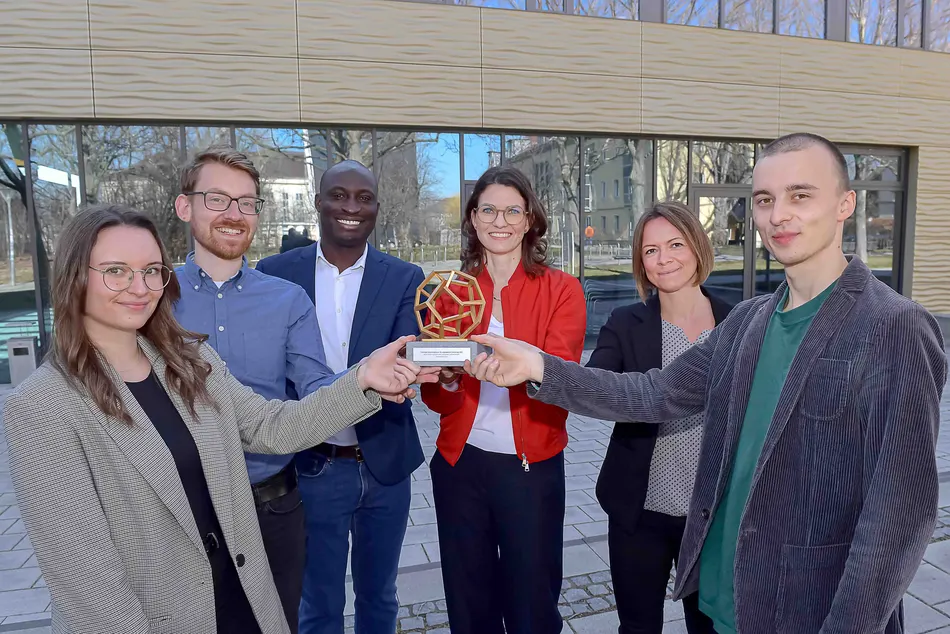Thuringian Research Award for Cornelia Betsch
The prize is endowed with a total of 12,500 euros. More than 240 researchers have been honoured so far. Prof. Dr. Cornelia Betsch is the fourth person at the University of Erfurt to be awarded the Thuringian Research Prize, following Prof. Dr. Jörg Rüpke, Prof. Dr. Martin Mulsow and Prof. Dr. Hartmut Rosa. A jury of recognised scientists from all over Germany decided on the award. They honour the excellent research achievements of individuals or research groups in the categories of basic and applied research. The University of Erfurt nominated Cornelia Betsch for the Thuringian Research Award because of her outstanding scientific achievements in the field of health communication in general and her contribution to the management of the Corona pandemic in particular. "With her work, she has not only contributed to the advancement of the state of research in her discipline. Rather, she has also been able to clearly demonstrate the extraordinary relevance of her research and its results for society and politics," reads the justification.
Cornelia Betsch's scientific achievements consist of comprehensive findings, some of them outstandingly well published internationally, firstly on infection control behaviour in general and secondly on health behaviour in the Corona pandemic. The scientist is also able to communicate both to society through comprehensible and at the same time innovative presentation formats for research communication and thus make them socially effective. Since the beginning of the pandemic, Cornelia Betsch and her team have dedicated themselves to the topic of "Understanding and Changing Infection Protection Behaviour" in several studies. In a very short time, she set up a highly efficient monitoring system that very soon became a reference study for journalists, the public and politicians, for example, when it came to questions about how people perceive various aspects of the crisis or how the measures to combat the Corona virus are accepted. Internationally, this type of monitoring was recommended by the World Health Organisation with reference to the Thuringian study and with the employee of Professor Betsch. Due to the close-knit rhythm of data collection, the team has always picked up on current topics and has thus drawn a psychogram of the dynamic pandemic situation in Thuringia and Germany. The findings were obtained through an innovative combination of quantitative monitoring of the course of the disease, qualitative data and psychological experiments that also shed light on the causality of interrelationships. Nationally and regionally, the data collected is of great importance and was a central basis for the authorities responsible for crisis management. The Federal Centre for Health Education (BZgA), for example, published numerous press releases and information services based on the data, and the Robert Koch Institute (RKI) issued recommendations, e.g. on rapid testing or dealing with Christmas and other social gatherings, whose orientation was based on the findings of the Thuringian team. The President of the RKI, Prof. Dr. Dr. hc Lothar Wieler, also frequently referred to the data in federal press conferences. Finally, the results of the study on vaccination were also used locally in Thuringia: In a special study, schoolchildren and parents were asked about vaccination – this resulted in the comprehensive information offer, which is especially aimed at children and adolescents (https://www.tmasgff.de/covid-19/impfen/kinder-und-jugendliche). In addition, Professor Betsch has rendered outstanding services to the Graduate Service: In addition to her membership and involvement in the university graduate centre and graduate programme of the "Centre for Empirical Research" (CEREB), numerous early-stage researchers are involved in her research projects and are thus given the opportunity to research and network in international contexts.


